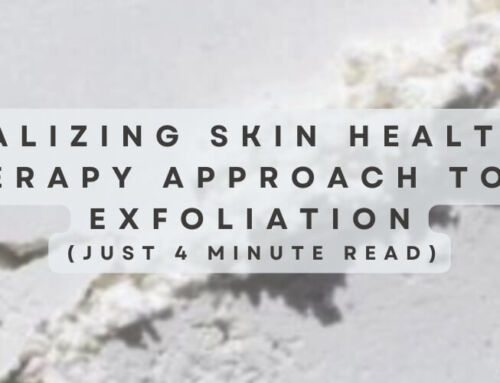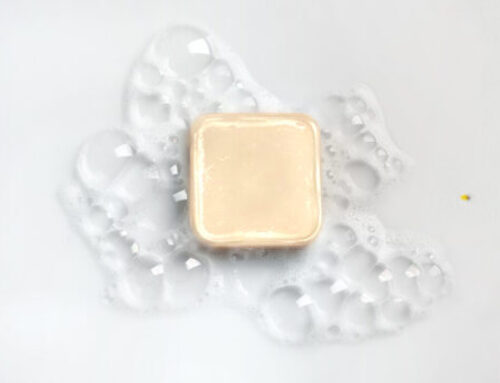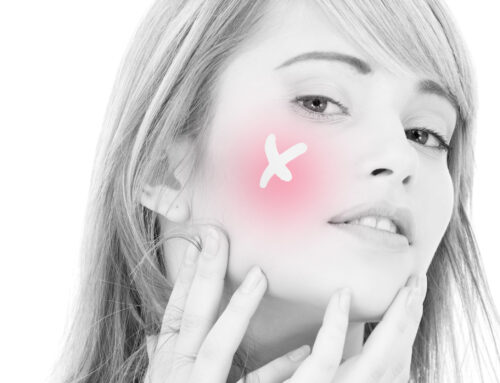The summertime brings us many warm-weather delights: picnics in Central Park, grazing along a farmer’s market, indulging in extra ice cream and fruit salads. But too many of those delectable days, however, means your skin will need extra TLC to keep it protected—especially under the sun.
Oxidation and How it Intensifies in the Summer
Have you ever cut an apple on a hot summer day and left it uncovered, only to notice it has quickly turned brown? That’s oxidative stress−the oxidation of the polyphenols of the apple mixed with oxygen assisted by the enzyme phenoloxidase, to be exact.
And the trick to keeping the treat fresh all afternoon? You guessed it: Just a splash of lemon juice. Lemons, we understand with its high content of antioxidant vitamin C, slows the browning process.
Your skin, too, is subject to oxidative stress, mainly by sun exposure. And if you live in a place like New York City? You’re further exposed by holes in the ozone layer and higher pollution levels—two huge summertime culprits. Factor in increased alcohol consumption, junk food, and working out more outdoors, and you’re sending the oxidation affair into hyperspeed.
The process is when free radical production is higher than your body can detoxify.
When these free radicals are combined with oxygen, they become your skin’s enemy. They attack the lipids and DNA in the epidermis, and then travel down to the dermis where it wreaks havoc.
In fact, the most destructive forms of oxidative stress is lipid peroxidation. The lipids of the permeability barrier–the building blocks; the most critical for controlling water loss and penetration of harmful pathogens/pollution—come from lipid-producing organelles (ex: mitochondria/golgi apparatus). If those organelles are damaged by lipid peroxidation, the permeability barrier drops in defenses AND they will produce radicals, too.
What all of this means is dryness, aging, inflammation, wrinkles, pigmentation and possibly cancer. Lipid peroxidation also attacks the membrane surrounding the corneocyte, which means loss of mechanical structure, moisture and most importantly Natural Moisturizing Factor (NMF). Fun fact: the urocanic acid in NMF is thought to absorb more UV radiation than melanin–so it can be a vicious cycle.
Whenever two radicals meet, however, they destroy each other. Such is the case with antioxidants—and also why they are called “radical scavengers” in this context.
If you look at the skin from a barrier perspective, it has a robust antioxidant network—concentrated in the stratum corneum where the barrier is coming together. On a normal day, it has enough to keep you protected. Your skin is prepared for and wants to maintain homeostasis.
It has a certain amount of free radicals there, too, needed to trigger the necessary reactions in your skin. That’s why using too many antioxidants are just as bad as the free radicals themselves because antioxidants and free radicals borrow from each other, and too many of either one can rev up the stress and chaos. It’s a delicate, delicate balance.
Oxidative stress will affect your skin on some level, no matter what you do… but sun protection helps.
Some of these things are in our power to control our intake (like eating healthier) or exposure (like sunscreen), but some are just part of life. “Outside the body, radicals form through radiation on the skin, a process that also induces melanin formation and thus establishes a protective barrier against radiation. Melanin is an excellent UV filter – it completely converts sun radiation into heat without the formation of further radicals,” explains Dr. Hans Lautenschläger. “Melanin, however, should not be overcharged with this task.” This is why sun protection and avoidance is vital.
Besides sun protection, vitamins and antioxidants in skincare are essential to combat oxidative stress.
dermaviduals®, first and foremost, makes sure you have a good barrier, putting in the skin the things it’s missing or the things it can’t produce itself. Then if the formula has added antioxidants, it needs a way to make it down into the tissue. That’s why dermaviduals has its inflammatory active ingredients and antioxidants encapsulated so they can be delivered down into the tissue, where your skin will accept them.
Our leave-on Vitamin Masks (DMS Mask with Vitamins & Vitamin Cream Mask) are perfect to provide your skin with daily essential antioxidants. Serums are used for oxidative stress, photoprotection and MMP inhibitors while Essential Fatty Acids are helpful for pigmentation and barrier formation.
In addition, any of our Day Creams (Plus or S) have strong UV filters and make perfect year-round protection! To become a dermaviduals retailer in your clinic, email us at info@dermavidualsny.com.






